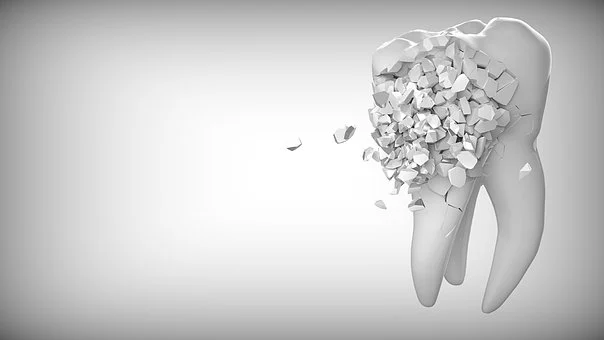Land up in a hotel washroom, a flamboyant cosmetic store or a teenager’s closet, and you will find a picture similar to the one above.
Kudos to advertising and marketing! A medical formulation made its way to become a daily cosmetic!
Why do you need a mouthwash? You might be smiling while reading this question. A silly question, right!
The obvious answer is a mouthwash freshens our breath and improves oral health.
Do You Know What Is In Your Mouthwash?
The most common ingredients present in your daily mouthwash are as follows:
- Chlorhexidine: It is an antiseptic and disinfectant. It is very effective against bacteria causing tooth decay and gum disease.
- Alcohol: A antimicrobial agent
- Oils: Mint (menthol), thyme (thymol), eucalyptus (eucalyptol), and wintergreen (methyl salicylate) oils are commonly present. They create that cooling, minty, clean and fresh feeling in your mouth.
- Fluoride: Strengthens tooth enamel and fights bacteria
- Xylitol: It is a sugar alcohol but does not feed mouth bacteria. It renders mouth bacteria unable to process other sugars.
Most mouthwashes contain at least one of the ingredients; some may consist of all of them! Cool then!
It is a common understanding that using a
mouthwash daily will rule you out of every
chance of getting any oral disease
The bright blues, greens, yellows, and purples of different mouthwashes lure your eyes when they hover on the shelves of your nearest store. With the media commercials added to the plate, you impulsively grab those coloured bottles as a must-have in your wash-basin cupboard. Sounds similar to your customer avatar, isn’t it?

Ok. So what if you are using mouthwash once or twice a day?
Let’s find the dragon!
Chlorhexidine is one of the most common ingredients of any mouthwash that you use. Chemically, Chlorhexidine (CHX) is a big molecule! It is a positively charged antiseptic molecule and has a broad-spectrum antimicrobial activity. It is used in three forms: digluconate, hydrochloride, and acetate.

It is time for a closer look at the action of this primary ingredient.
CHX binds lipopolysaccharide and phospholipids present on a bacterial cell membrane. The interactions between positive charges on CHX and negatively charged phosphate groups on the bacterial cell membrane increase the permeability of the cells. Then CHX is easily transported into the microbial cell.
CHX has a two-way action :
1) bacteriostatic effect – inhibits bacterial growth
2) bactericidal effect – kills bacteria
At 0.2% concentration, due to the leakage of low molecular weight substances (potassium and phosphorous) from the bacterial cell wall, CHX is bacteriostatic. On the other hand, at a 2% concentration, CHX is bactericidal, as precipitation of the cytoplasmic contents occurs and leads to cell death.

With these powerful antimicrobial actions, it might seem that you have developed a good habit of using your mouthwash daily.
To some extent, you are right. But you need to see things differently now because:
” Anything in excess is a poison”
– Theodore Levitt
Unfortunately, we tend to forget that mouthwash is afterall a medicinal formulation. It cannot be used just like that as we wish. The positive effect of these formulations will work best when taken at an appropriate dosage and in the correct situation as prescribed by concerned experts.
Daily use of mouthwash has a detrimental effect
on your oral and overall health
Let us look into some facts revealed through years of research.
Our mouth harbours a diverse and complex ecosystem of microorganisms. Few names like Neisseria, Streptococcus, Granulicatella, Veillonella and Actinomyces are noteworthy as oral disease-causing agents. Recent studies using molecular technologies have revealed that excessive use of CHX may increase some of such disease-causing genera of oral bacteria.
Some other studies have concluded that CHX has been found guilty of lowering microbial diversity, particularly those colonising tongues.
Scientists have related lower diversity of oral
bacteria to a greater risk of oral diseases
Does Chlorhexidine affect your mouth’s acid-base balance?
Another aspect you should know about CHX is its effect on your saliva. There are several molecules and ions in our saliva that helps to maintain a proper pH, and buffering capacity and help saliva carry out its normal functions.

Source: : The Royal Society of Chemistry
CHX increases saliva lactate concentration and reduces its buffering capacity. These changes are commonly associated with a greater risk of oral disease.
CHX promotes acidification of saliva. It changes the ratio abundance of different families of bacteria that are essential to maintain the acid/base balance in your healthy mouth.
Can your mouthwash affect your overall health?
This question might be surprising! But the answer is a yes.
Nitrite is a nitrogen compound that forms naturally in the mouth by the action of oral bacteria. CHX lowers the abundance of these bacteria. Thus, it contributes to reducing nitrite availability.
Nitrite has a role in cardiovascular control. It keeps your heart working fine and helps to keep the blood pressure normalised.
CHX reduces the availability of nitrite. Current studies indicate that the use of CHX mouthwash leads to an increase in blood pressure. It may be more vivid in people with high blood pressure levels.
Are you feeling concerned reading all these? If so, then definitely think twice next time you sip your mouthwash for rinsing.
So, are you going to stop using all
mouthwashes?
Should you need to find a new solution to keep
your mouth healthy?
No. Not at all!
Mouthwashes are primary formulations to keep your mouth healthy.
The only change we need to adapt to our consumer behaviour is to use mouthwashes under expert vigilance. Use them as prescribed by your dentist.



